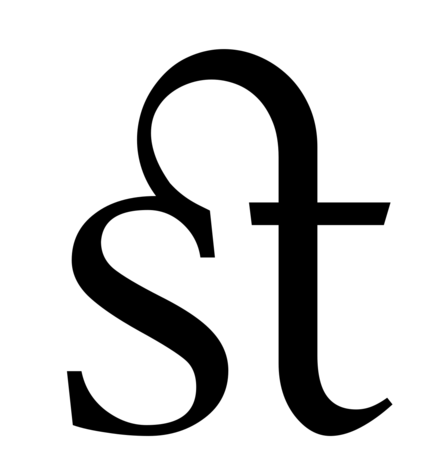Embracing the Joy of Language Learning: Five Fascinating Words I Discovered This Week
Language is an ever-growing inventory of communication. There’s always something new to learn. And that goes for both native speakers and non-native speakers. But I think it’s important to recognize and acknowledge the fact that non-native English speakers continue to learn new things about their native language as well. They don’t know everything about the language and yet they are often put on a pedestal with that assumption. Heck, try asking a native English speaker some grammar rules and although they know how to use it, they might not know how to explain it or why. It's a constant reminder that being an English speaker doesn't mean you've reached the pinnacle of English language mastery; it's an ongoing and natural process to continue to learn.
So here’s five new words I stumbled upon this week, each of them a word I never knew before:
1. Interrobang ⁉️ ‽
Have you ever noticed those intriguing combinations of question marks and exclamation points used to express excitement, disbelief, or confusion? They might look like this: ?!, !?, ?!?,?!!, !??, or !?!. Well, these unconventional punctuation marks have a proper name – they are called "Interrobang." This unique symbol, a fusion of the question mark (?) and the exclamation point (!); a combo punctuation to communicate excited questioning.
2. Spumescent
Sometimes, you encounter a word that paints a vivid picture with just its sound. "Spumescent" is one of those words. This adjective describes something as frothy, foamy, or foam-like. It's the kind of word that can make you feel the texture of a cappuccino's milk froth or the bubbling sea foam on a beach. While "frothy" can equally be descriptive, "spumescent" sounds a little more fancy. Certainly a rare word to hear or read in modern day, but I know a few people who might use the word descriptively in a medical report or I could imagine reading it in a book.
3. Ligature
"Ligature" is a versatile word with multiple meanings, and its usage extends across various domains. At its core, it refers to the act of binding or tying up, whether it's an artery skillfully ligatured in surgery, a bandage used for binding wounds, or even the thread or wire used for constriction in medical procedures. In typography, a ligature is a stroke or bar connecting two letters, like "fl" or "æ," enhancing the visual aesthetics of text.
In music, it's associated with a group of notes connected by a slur or securing a reed to a clarinet or saxophone mouthpiece. The breadth of its applications showcases the intricate web of meanings woven into the English language.
In my personal use case, knowing what it means pertaining to medical surgery and intervention is important for my work.
4. Remuneration
"Remuneration" means compensation paid for work or a service. I always thought it was ‘renumeration’ instead of ‘remuneration’ so it was nice to learn it properly. Any payment for your service or work falls under the umbrella of remuneration.
5. Garrulous
Lastly, we have "garrulous," a word that aptly describes those who are excessively talkative, often in a meandering and long-winded manner, particularly about trivial matters. We all know someone like that. Picture the person who can't resist turning a simple story into an epic saga filled with irrelevant details. Or a person who goes on and on for 10 minutes talking but at the end fo the conversation you still don’t know what they were talking about. "Garrulous" serves as a polite yet precise way to characterize such conversationalists.
Now, will I be using these words regularly in my own speech and writing? Probably not. They are fairly niche and rare. But it’s important to grow my vocabulary, to continue to learn new words, and to be able to recognize them when other people potentially use them. It also highlights that native English speakers can continue to grow as well; that there are new facets of the language to learn and discover, and that it is natural to not know.
The main thing is to keep our linguistic curiosity alive and an attitude of ever-learning and ever-growing.



